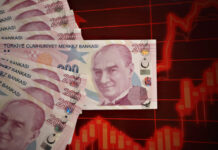The decline in Russia’s cultural creativity under post-Communist as well as Soviet rule belongs to a larger syndrome that emits warning signals to outside investors. Why do nations fail? Top down exploitation of people and resources tends to backfire. The whims of autocrats throttle not only cultural development but also the prospects for mutual gain in business.
For centuries investors in the West have been tempted to invest in Russia, largest country in the world and rich in resources both human and material. For more than a thousand years, however, authoritarian rule has prevailed over law in Russia. Conditions have improved since Stalin, but have slid backward in the 21st century under Vladimir Putin.
This essay traces a sharp decline in the level of cultural creativity in Russia – a trend that parallels low levels of public health, societal trust, and respect for law. The UN Human Development Index (based on education, health, and income) rates Russia 49th in the world (from Norway, 1st, to the Central African Republic, 188th). Freedom House deems Russia “not free”, with a score just slightly higher than Saudi Arabia, Sudan, and North Korea. On a scale of corruption that includes 176 countries (with Denmark the least corrupt), Transparency International places Putin’s Russia at 131st. This situation depresses the quality of life for most Russians and helps foster dangers to regional and world peace. It also presents serious risks to outsiders hoping to do business in Putin’s Russia.
Part of the old Russia remains, as we see in Ukraine, an imperial bully intent on dominating any neighbour unable to repulse the world’s largest power. But Tsarist Russia, for all its negative traits, had redeeming features. Nineteenth and early twentieth century Russia gave rise to some of the greatest music, dance, and literature in human history – a flowering not spawned by Vladimir Putin’s petrostate.
Great civilisations can whither – even when built on the material and human foundations of a potential superpower. China, the West, and the world of Islam are all in jeopardy. But what happened to Russian civilisation? What has happened to deep creativity that for more than a century broke through the shackles of tsarist autocracy? Its sparks continued to glow on occasion in Soviet times but have now, despite the nominal end of Communist dictatorship, nearly burned out.
What happened to the literary scene that gave the world some of its greatest ever poets and novelists – Pushkin, Lermontov, Tolstoy, and Dostoevsky? Where is today’s Gogol, whose somewhat crazy stories lampooned Russian life, including the tsarist bureaucracy? (One descendant inhabits New York City, where Gary Shteyngart carries on the surrealist tradition.)
Several major Russian poets continued working in Soviet times. Vladimir Mayakovsky begged, “Make me a part of the Five-Year Plan!” When controls tightened, however, he committed suicide, as did his more romantic comrade, Esenin (spouse for a time to Isadora Duncan). One of Stalin’s favourite writers, Mikhail Sholokov won the Nobel Prize in literature in 1965 for his novels about the Russian Civil War and collectisation of agriculture. Three years later in 1958 Boris Pasternak also won a Nobel prize for Dr. Pasternak, but the Khrushchev regime kept him from accepting it. Solzhenitsyn also won a Nobel in 1970 for his novels exposing life in the gulag. Expelled from the USSR in 1974, he moved to Vermont. (He returned to post-Communist Russia in 1994 and died there in 2008.)
One of the leading dissident poets from the Khrushchev era, Yevgeny Yevtushenko, departed post-Soviet Russia to teach and recite in the USA. He told me that Russian audiences no longer appreciated poetry and – in the 1990s – could not afford books. His best known poem was Babi Yar, about the mass murder of Jews in Nazi-occupied Ukraine. The poem begins:
No monument stands over Babi Yar.
A steep cliff only, like the rudest headstone.
I am afraid.
Today, I am as old
As the entire Jewish race itself.
Yevtushenko passed away in Tulsa, Oklahoma in April 2017, having given one of his last public presentations at a synagogue in Boston.
Where is the musical scene that gave humanity some of its greatest music, dance, and theatre? The symphonies and operas of Glinka. Mussorgsky, Tchaikovsky, and Rimsky-Korsakov are still played – often by Russian masters with superb technical skills. Stalin smothered two giant composers, Prokofiev and Shostakovich. Risking censure for degenerate modernism, Prokofiev wrote Romeo and Juliet in 1935 and got it produced in 1940. Defying official and popular anti-Semitism, however, Shostakovich managed in 1962 to play his Symphony No. 13 to accompany the Yevtushenko poem, Babi Yar.
One of the world’s greatest cellists, Mstislav Rostropovich, provided refuge to Solzhenitsyn in his dacha after Communist officials criticised him for Gulag Archipelago (not published in Russia until much later). Rostropovich was then banned from performing except in provincial towns. Like Solzhenitsyn, the cellist and his singer wife eventually took exile in the West.
Similar tales abound in all the arts and sciences. Stalin and his successors suppressed, killed, or drove into exile many of the Soviet Union’s best and brightest. Yevtushenko was the most vital – most alive – person I have known. Edward Kuznetsov, jailed for attempting to hijack a plane to take Jewish dissidents to Israel, is the bravest man I have met. Andrei Sakharov, a father of the Soviet H-bomb but also the country’s leading campaigner for human rights, was probably the greatest Russian of all time. (I missed a meeting with him a year or so before his death in 1989 because my driver’s car ran out of gas on a rainy night.)
Other Russians – Balanchine, Nureyev, and Baryshnikov – transformed ballet from Paris to New York. When I look at the Met’s production of Boris Godunov or Eugene Onegin, I weep for the civilisation that gave rise to their birth but is no more. When I visited Moscow’s Tretyakov Art Gallery in 1958, the works of Chagall, Kandinsky, and other avant-garde painters were kept in a dark storage room. One needed a lantern to see them. Now, of course, they are displayed – in part to draw tourists. So are works by the dissident artist, Oskar Rabin, who took exile in Paris. Asculpture by the lateErnst Neizvestny still graces the tomb ofNikita Khrushchev,but the artist moved toNew York.
Borodin’s opera Prince Igor revived at the Met in 2014 recalls not only the glory of Russian musical genius but also a leitmotif of Russian and Ukrainian politics. Prince Igor leads his forces against invaders from Central Asia but is defeated. He and his fellow princes in today’s Ukraine quarrel among themselves and cannot unite to repel the attackers. Here is an old story: chaotic infighting at the top makes what remains of “Rus” unable to cope with determined challenges. The opposite of chaos is rigid order – imposed in later centuries by autocrats in Moscow, St. Petersburg, and, for a time, in Kyiv. Many people may demonstrate, but the outcome is uncertain. Even apparent victories may be short-lived.
What happened to Russia? Strangled by top-down rule for a millennium, many bright shoots burst forth in the century before the Bolshevik revolution. Tsarist rule was incomparably milder than Soviet. Exiled to Siberia for a time, the anarchist prince Petr Kropotkin and Communist V. I. Lenin could receive books, walk, and enjoy nature. Soviet rule, 1917-1991, chocked the creative breath from Slavic and other civilisations subdued by tsars and then by commissars. Since 1991 these peoples have struggled first under near anarchy and then under a dictatorship – neither conducive to cultural or societal fitness, as shown in death tolls from alcoholism and suicide. Unlike the United States, mainstream Russia has found no way to integrate other cultures that could enrich its way of life except by conquest.
What does this mean for Westerners trying to do business in Russia? Caveat emptor!
This article expands and updates an essay posted in Global Asia Forum, March 10, 2014 at http://www.globalasia.org/Forum/Detail/37/what-happened-to-russia.html
Featured Image: Landmarks of Moscow Kremlin © Getty Images
About the Author

 Walter Clemens is Professor Emeritus of Political Science, Boston University, and an Associate of Harvard University’s Davis Center for Russian and Eurasian Studies. He has written many books including Can Russia Change? (Abingdon, Oxon: Routledge, 2011). His most recent book is North Korea and the World: Human Rights, Arms Control, and Strategies for Negotiation (University Press of Kentucky, 2016). He can be reached at wclemens@bu.edu
Walter Clemens is Professor Emeritus of Political Science, Boston University, and an Associate of Harvard University’s Davis Center for Russian and Eurasian Studies. He has written many books including Can Russia Change? (Abingdon, Oxon: Routledge, 2011). His most recent book is North Korea and the World: Human Rights, Arms Control, and Strategies for Negotiation (University Press of Kentucky, 2016). He can be reached at wclemens@bu.edu



































































